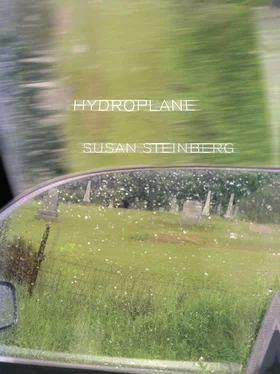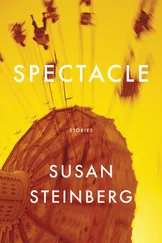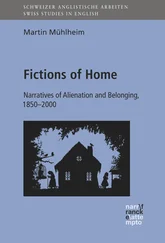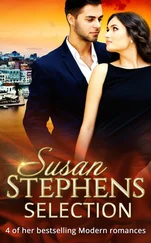Susan Steinberg - Hydroplane - Fictions
Здесь есть возможность читать онлайн «Susan Steinberg - Hydroplane - Fictions» весь текст электронной книги совершенно бесплатно (целиком полную версию без сокращений). В некоторых случаях можно слушать аудио, скачать через торрент в формате fb2 и присутствует краткое содержание. Год выпуска: 2006, Издательство: Fiction Collective 2, Жанр: Современная проза, на английском языке. Описание произведения, (предисловие) а так же отзывы посетителей доступны на портале библиотеки ЛибКат.
- Название:Hydroplane: Fictions
- Автор:
- Издательство:Fiction Collective 2
- Жанр:
- Год:2006
- ISBN:нет данных
- Рейтинг книги:4 / 5. Голосов: 1
-
Избранное:Добавить в избранное
- Отзывы:
-
Ваша оценка:
- 80
- 1
- 2
- 3
- 4
- 5
Hydroplane: Fictions: краткое содержание, описание и аннотация
Предлагаем к чтению аннотацию, описание, краткое содержание или предисловие (зависит от того, что написал сам автор книги «Hydroplane: Fictions»). Если вы не нашли необходимую информацию о книге — напишите в комментариях, мы постараемся отыскать её.
Hydroplane: Fictions — читать онлайн бесплатно полную книгу (весь текст) целиком
Ниже представлен текст книги, разбитый по страницам. Система сохранения места последней прочитанной страницы, позволяет с удобством читать онлайн бесплатно книгу «Hydroplane: Fictions», без необходимости каждый раз заново искать на чём Вы остановились. Поставьте закладку, и сможете в любой момент перейти на страницу, на которой закончили чтение.
Интервал:
Закладка:
when the fever broke you walked to the kitchen and your mother stood withered, barefoot, looking at the window and it was already funny to be barefoot in a kitchen and you looked in the freezer and it was just a freezer, no longer a cave but dim walls and cold air, how it's dim walls and cold air on this word-named street in this same old city on this glaring hazy day today when the sky is so thick and white you can't see clouds floating and you have to ask if anything is still afloat,
it's time, just a walk around the corner, just some air, and you should turn and walk before someone looks from your window, but there's no one, just the phone, but you should walk before someone calls from your window, but really there's no one, you're grown now, you're thirty, you're twenty, you're nineteen eighteen fourteen thirteen, you're nineteen, you're thirty, you should turn and walk before you rush back inside, before you answer the phone, before your father says, hello blue-blood, how's Baltimore blue-blood, can you see the glass streets from your window, can you see Lexington Market from where you live, can you see the crabs sideways crawling in watery cases, can you see the cows' heavy staring and the birds strung up with rope, and he would never say this, but if he did, but he wouldn't, but if he did you would tell him you can see the whole market shimmer from your window and you can smell the crabs, the sand and salt, the blood of the cows, you can hear their blood pulsing when the air is thinner, when the sky is bluer, you can see the window in the market from your window and the cows' heads past the window about to hit the straw floor, the cement floor, and you can see the laughing yellow raincoats, you can see how funny it is to be on the good side of a window and the cows can see you laughing and laughing because you can take it now because you really don't care now because you're grown now, this old, and the cows can see their last see-through and it's you there laughing it up before their heads hit the floor before their time is up,
when the fever broke you walked to the kitchen and your mother stood tired, barefoot, looking out the window, and your father walked in wet-haired, withered, goodness, that day, you remember that day, he'd only been out for a walk,
listen, the phone's still ringing behind your window and listen, the fan's still spinning behind your window and look, the sky's a white glare in your window and look, the sun's a white haze in the sky in your window and look, there's oil from your eyes and salt from your eyes floating like hairs on the sun in your window and look, there's blood on the walk hot under your feet before you slip on your shoes, before you turn to walk,
The Garage
We saw the two cars in the garage. The ladder lay on its side. There were rusted paint cans by the wall. Paintbrushes stuck to the tops of the cans. Brooms poked up from a bucket. The ladder lay between the two cars. The brooms cast a shadow like the shadow of a man.
We saw milk crates scattered across the floor. We saw jump ropes, skates. These were ours. On the floor were open magazines. The pages flapped from the breeze that came in. The light was on above our heads. The garage door was shut tight before we raised it. We were not supposed to raise the door. Our mother always told us to keep from the garage. Our father was not one to give a damn.
The magazines popped opened to their centers. They were magazines we were not supposed to see. The ladder lay between the two cars. No, it leaned against a car. It leaned against the coupe. The coupe was the car our father drove. Our mother drove the wagon.
The ladder was broken, rotted. Its rungs were split. The milk crates are what he climbed that day. The milk crates were ours.
Our mother walked to work that morning. She worked at the synagogue doing something. The synagogue was in the next neighborhood. Some days, if the weather was nice, she walked. On this day the weather seemed nice enough. Though it looked a little like it could rain. We thought we heard thunder in the distance.
The garage door was painted blue. Same as the shutters on the house. Same as the front door. The dark shade of blue our mother chose standing at the counter in the paint store when we were smaller and waiting by the paint store door with our father who, our mother had decided, would paint the house before the summer turned too warm. Our mother bought the ladder that day in the paint store. She bought rollers and brushes and a blue shade of paint. Our father leaned back, his back to the door.
Our mother was careful not to park the wagon too close to the coupe in the garage. The wagon doors could have scratched the coupe. And then what.
In the dark hallways at school there was no one to catch us walking into school late. There were no teachers in the hallways handing out slips. This was junior high. The bells were ringing. So no one noticed when we slipped into our first classes so late the classes were ending.
There was a metal hoop above the garage door, rusted in places, bent. A net hung from the hoop by a single weathered loop of string. A basketball lay deflated in the yard, stuck in the weeds. Our mother often said on her quick walk from the wagon to the front door, looking at the rusted hoop, looking at the deflated ball in the weeds, You kids can't take care of anything, and, Lord give me strength.
The synagogue had stained glass windows. We sat in the row of hard seats in the back. This, despite our mother's protests. This, despite her, You'll sit up front with me, I'll be the laughingstock, Damn you kids. The synagogue ladies had enormous tits. They said to our mother, Let them sit in the back.
We should not have been in the garage. But we never cared what our mother told us. We hid our skates and jump ropes, the magazines, in a corner in dusty milk crates. We took our things out of hiding after school. Mostly when there was rain. Or when nothing good was on TV.
Minutes dragged at school that day, as they did on others, but even more slowly that day, the long second hands of the clocks just dragging across the clocks' faces. And we tried, in our separate classrooms, for we were in separate grades with separate teachers, to hold our breath for thirty seconds just to see if we could, watching the hands drag along the faces. But we could not hold our breath for more than twenty seconds, as twenty seconds, when holding our breath, felt longer than a minute, felt longer even than an hour, and we took in air at twenty seconds, trying not to be heard by anyone around us, knowing we would tell each other in the lunchroom, as we did every day, how long we held our breath in class.
There was a string tied to the bell that hung from the paint store door we could not help but shake to make the bell jingle, until our father told us to keep our hands in our pockets, saying the one who did so for longest could ride shotgun in the wagon and push the button to raise the garage door when we pulled into the drive.
In the synagogue were twenty rows of seats. We counted them from our place in the back. The rabbi confused us when we listened. He looked at us as he talked. We were the stars that day.
When our father bought the coupe he insisted on fully equipped, despite our mother's protests. She said, Your father thinks he's a kid, and slammed a door. They had made a deal though. If he painted the house the blue she wanted, he would get a new coupe at the end of summer. He would get it fully equipped.
Our mother used to make us go to the synagogue on Saturdays. Our father stayed home and watched TV. We did not want to go with our mother. We wanted to watch TV instead. Or go for a ride with our father. Our mother said, I'll be the laughingstock. Our father never looked up from the TV. Our mother went out to the wagon. Our father said, Your mother thinks she cares. We did not know what he meant. Our mother blared the horn. Our father never looked up. In the wagon we held our breath in the back seat. Our mother did not care if we held our breath.
Читать дальшеИнтервал:
Закладка:
Похожие книги на «Hydroplane: Fictions»
Представляем Вашему вниманию похожие книги на «Hydroplane: Fictions» списком для выбора. Мы отобрали схожую по названию и смыслу литературу в надежде предоставить читателям больше вариантов отыскать новые, интересные, ещё непрочитанные произведения.
Обсуждение, отзывы о книге «Hydroplane: Fictions» и просто собственные мнения читателей. Оставьте ваши комментарии, напишите, что Вы думаете о произведении, его смысле или главных героях. Укажите что конкретно понравилось, а что нет, и почему Вы так считаете.












